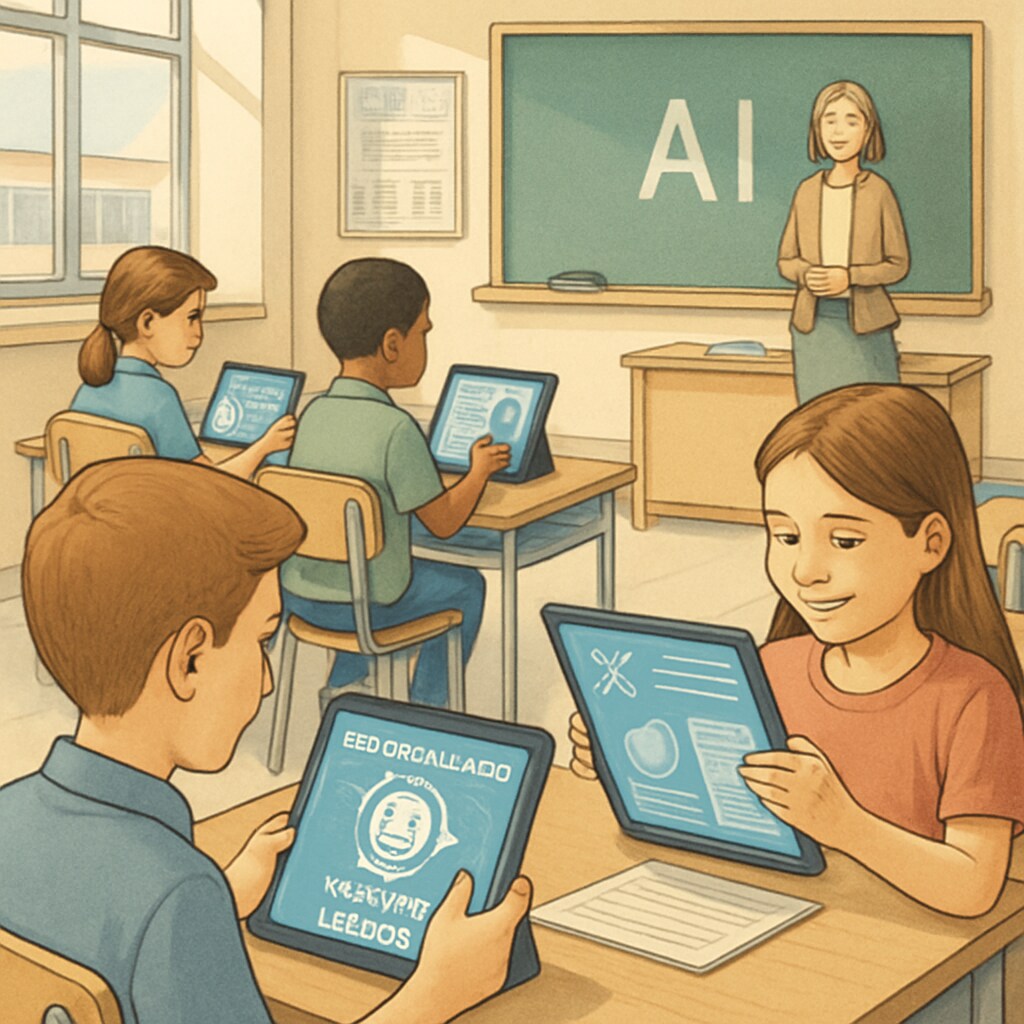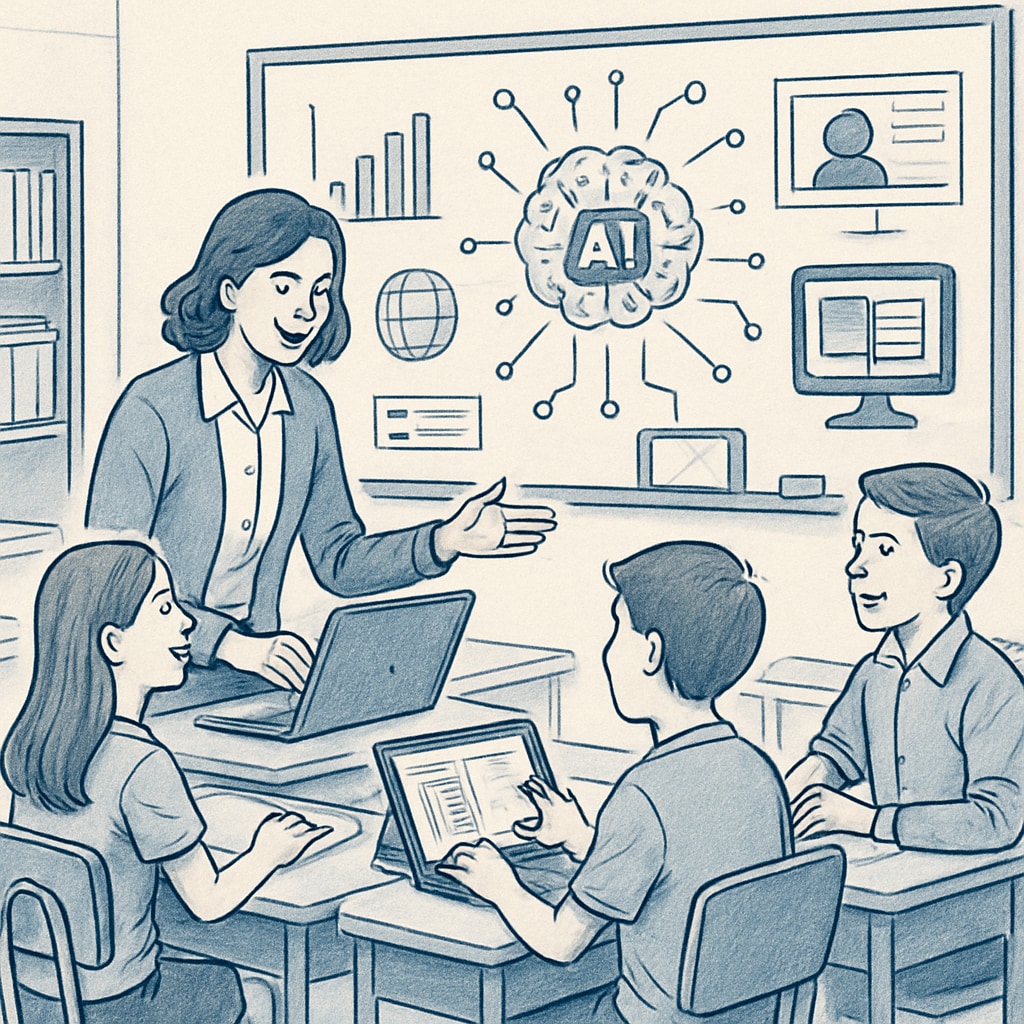Artificial intelligence (AI) is transforming school education, paving the way for personalized learning, redefining teacher roles, and revolutionizing assessment systems. As AI continues to evolve, its impact on the learning ecosystem is expected to reshape K12 education dramatically in the next 5-10 years. This article explores the profound potential and challenges AI poses to the future of school education and provides forward-looking insights for educators, policymakers, and parents.
Personalized Learning: Tailoring Education to Individual Needs
One of the most promising applications of artificial intelligence in education is personalized learning. AI-powered platforms can analyze student data, including performance, learning styles, and areas of difficulty, to create tailored learning experiences. For example, tools like adaptive learning software dynamically adjust content and pace based on an individual’s needs, ensuring that students receive the right level of challenge and support.
Moreover, AI can facilitate real-time feedback, allowing students to identify and correct mistakes instantaneously. This not only enhances their understanding but also fosters self-directed learning habits. In addition, AI can help educators save time by automating repetitive tasks, such as grading assignments and tracking progress.
- Adaptive learning systems for tailored instruction
- Real-time feedback to accelerate learning outcomes
- Automated administrative tasks for educators

Teacher Roles: From Instructors to Facilitators
AI is not replacing teachers but augmenting their capabilities. With AI handling routine tasks, educators can focus on higher-value activities such as mentoring, fostering creativity, and addressing students’ emotional and social needs. Teachers are increasingly becoming facilitators of learning rather than mere dispensers of knowledge, guiding students to think critically and collaborate effectively.
Additionally, AI provides insights into classroom dynamics by analyzing behavioral patterns and engagement levels. For instance, machine learning algorithms can predict when a student is disengaged and suggest interventions to re-engage them. This improves the overall learning environment and ensures no student is left behind.

Assessment Systems: Moving Beyond Traditional Methods
Traditional assessment methods often fail to capture the full spectrum of a student’s abilities. AI introduces innovative assessment tools, such as gamified evaluations and skill-based tracking, that go beyond grades and standardized tests. These tools measure critical thinking, creativity, and emotional intelligence, providing a more holistic view of a student’s progress.
For example, AI-powered platforms can use natural language processing (NLP) to evaluate written assignments for both grammar and conceptual understanding. Similarly, AI can analyze facial expressions during presentations to assess confidence and communication skills. These advanced assessments contribute to developing well-rounded individuals prepared for the challenges of the future.
- Gamified assessments for immersive evaluation
- NLP tools for in-depth analysis of written work
- Behavioral analysis for skill development tracking
However, these advancements also raise ethical concerns about data privacy and bias in AI algorithms. It is crucial for stakeholders to establish guidelines to ensure AI systems are transparent, unbiased, and secure.
Challenges and Ethical Considerations
While artificial intelligence offers immense potential, it also presents significant challenges. Data privacy is a major concern, as AI systems rely on collecting and analyzing vast amounts of student data. Ensuring this data is secure and used responsibly is paramount.
Additionally, bias in AI algorithms can lead to unequal learning opportunities for certain groups of students. Policymakers and developers must work collaboratively to create systems that promote equity and inclusivity. Transparency in AI decision-making processes is another essential factor to build trust among educators, students, and parents.
Key ethical concerns:
- Data privacy and security
- Algorithmic bias and fairness
- Transparency in AI decision-making
As a result, AI in education requires a balanced approach that maximizes its benefits while addressing these challenges. Stakeholders must develop frameworks to ensure AI is implemented responsibly.
Conclusion: A Glimpse into the Future of Education
Artificial intelligence is poised to transform school education by making learning more personalized, redefining the role of educators, and introducing innovative assessment methods. While challenges such as data privacy and algorithmic bias remain, the opportunities AI presents are too significant to ignore. By addressing these concerns proactively, educators, policymakers, and parents can harness AI to create an inclusive and effective learning ecosystem for future generations.
In the next decade, AI will likely become an integral part of classrooms worldwide, fostering innovation and empowering students to unlock their full potential. The future of education is undoubtedly bright—and AI will lead the way.


